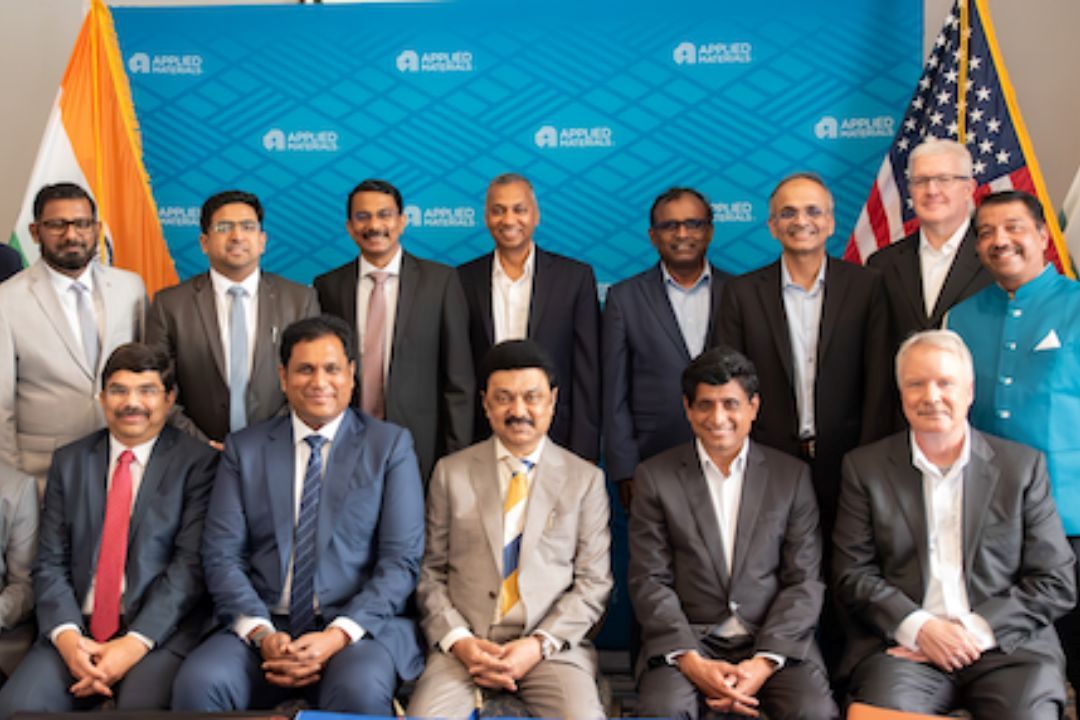Global semiconductor manufacturing relies heavily on four major suppliers of fabrication equipment: Applied Materials, ASML, KLA, and Tokyo Electron. As India moves forward with plans for new semiconductor manufacturing units, these leading toolmakers are beginning to focus on the country’s emerging market.
Applied Materials, the world’s second-largest semiconductor equipment maker with an annual revenue of $26.52 billion, is reportedly planning to set up a manufacturing unit in India. Sources suggest that Tamil Nadu is being considered as the location for this major investment.
The move by Applied Materials is seen as part of a broader “China Plus One” strategy, especially after the company recently lost its top position in the semiconductor equipment market to Dutch competitor ASML. The company currently relies on China for 43% of its sales, despite U.S. trade restrictions affecting its exports to the region.
In addition to the manufacturing unit, Applied Materials is planning to establish an AI-enabled technology development center for semiconductor and equipment production in Taramani, Chennai. This center is expected to create 500 jobs. While the specifics of the company’s plans for India remain unclear, there is speculation that it may focus initially on research and development before entering full-scale manufacturing once the Indian government updates its incentives for the semiconductor sector under the Scheme for Promotion of Manufacturing of Electronic Components and Semiconductors (SPECS).
The Indian government has already cleared five semiconductor projects as part of its push to boost domestic production. This includes Micron’s assembly, testing, marking, and packaging (ATMP) facility in Gujarat, with an investment of $2.75 billion, and Tata Electronics’ semiconductor fab unit in Dholera, Gujarat, in partnership with Taiwan’s Powerchip Semiconductor Manufacturing Corporation (PSMC). Other approved projects include units by Tata Semiconductor Assembly and Test Private Ltd (TSAT) in Assam, CG Power’s unit in partnership with Japan’s Renesas Electronics in Gujarat, and Kaynes Semicon’s facility in Sanand, Gujarat.
Applied Materials’ expansion plans are also driven by Beijing’s efforts to establish its own domestic chip supply chain, as well as U.S. export restrictions that have impacted the company’s sales to China. In 2023, ASML overtook Applied Materials as the world’s leading fab toolmaker, with reported revenue of $29.83 billion compared to Applied’s $26.52 billion.
To attract semiconductor manufacturers, the Tamil Nadu government is offering subsidies of up to 50% on capital expenditure, along with payroll reimbursements for several years, in addition to incentives provided by the central government. This development highlights India’s growing importance in the global semiconductor industry as it seeks to reduce its dependence on imports and become a key player in the global supply chain.







